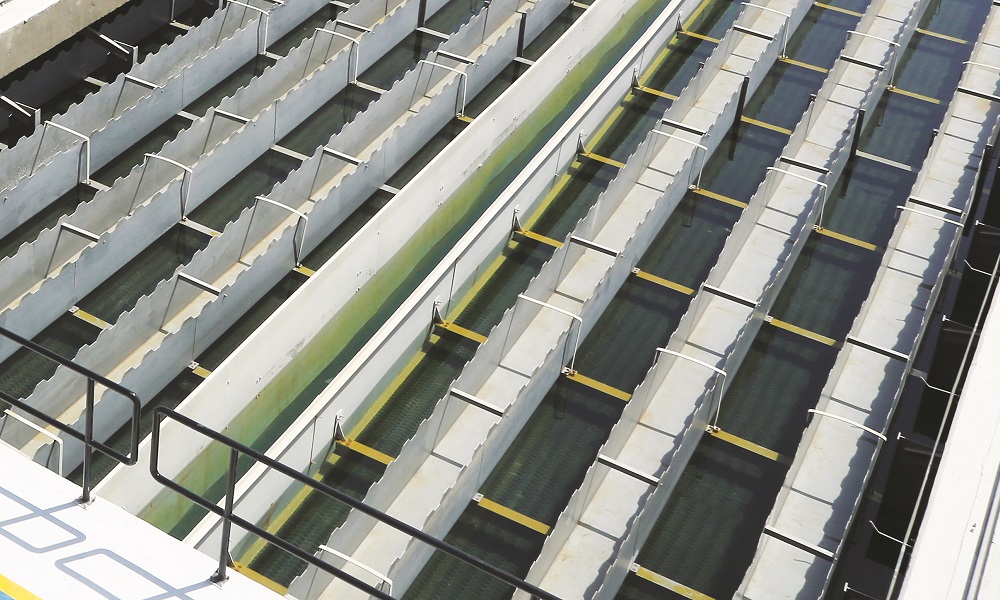Project profile: A future from the Nile
Profiling the El Hammam Agricultural Wastewater Treatment Plant in Egypt, a project that will have a crucial role to play in the country’s agricultural future and its development of the Western Desert region

At the start of March, Metito, the global provider of total intelligent water management solutions, announced that it had been awarded a contract for the design, supply, construction, operation and maintenance of the El Hammam agricultural wastewater treatment plant in Egypt.
With a capacity of six million cubic meters of water per day, the agricultural wastewater treatment plant will be one of the largest in the world when it is completed. It is being jointly developed by Hassan Allam, the Arab Contractors (Osman Ahmed Osman & Co) and Orascom Construction.
This vital project is part of the Egyptian government’s strategy to expand the country’s agricultural areas and develop the Western Desert region. Furthermore, the government intends that it will also contribute towards creating a positive social and economic impact in the country, including in the development of new agricultural and population communities.
In order to achieve the plant’s delivery capacity, Metito explains that agricultural drainage water from the north of the Nile Delta will be collected and transported to the plant via a 120km-long course. The treated water will then irrigate up to 500,000 feddans west of the Nile Delta area.
To understand the scale and impact of this project on Egypt’s agricultural future, Big Project ME spoke to Karim Madwar, Metito managing director – Africa, about the scope of work for the water management solutions provider, and its impact on the North African country.
“Metito has more than 60 years of experience providing customised, comprehensive, and advanced solutions across the full spectrum of its industry with a growing portfolio of mega desalination and wastewater plant projects, developed on fast-track basis. This project was recently awarded to a joint venture consisting of Metito, Hassan Allam, The Arab Contractors, and Orascom Construction. Our scope of work involves the design, supply, construction, and operation and maintenance for five years.
“We have been working closely with the Egyptian Authorities implementing their progressive multi-pronged developmental plans that included various strategic water projects including the latest commissioned – the Al Mahsamma agricultural drainage treatment recycle and reuse plant which has a capacity of 1,000,000 m3/day and which was completed in only 10 months.
“With our reputation of excellence and keenness to play an active role in Egypt’s water future, we are honoured to be trusted with this project and look forward to its success,” Madwar says, adding that the project is scheduled to be operational in two years’ time.
Having been awarded to the JV in March 2021, the scheduled completion date for the contract is in 2023, and Madwar states that as the leading entity on the project, it expects to allocate more than 500 designers, engineers, operators and technicians during the process design and engineering phase, the procurement and installation of electromechanical equipment, and the five years O&M phase.
“As the technology lead in this JV, we will provide the process design and engineering, sizing and selection, installation, testing and commissioning of the overseas equipment and local electromechanical items. Metito will carry out the coordination with the civil works partners to assure all works have been designed and executed according to the process design requirements,” explains Madwar.
The main challenge facing the team is to complete construction, operate the first stream, and complete the supply of all project equipment and materials within the 18 month timeline.
An additional challenge is that sewage water with a high salinity of 2000 mg/l is present in the agricultural drainage, making it more challenging in terms of water treatment from the design and construction perspective, he says.
Atif Abdel Gawad, Metito Africa projects director adds that the high salinity of the drainage water means that it will require special pre-treatment and mixing it with normal irrigation water to get the quality of treated water suitable for irrigation purposes.
“Another key challenge is that due to the capacity of the plant there is a need for larger-than-standard sized equipment (e.g.: disc filters) which will be especially tailor-made for El Hammam,” he elaborates while stressing that Metito’s extensive experience in comprehensive wastewater treatment solutions and technology will facilitate such processes.
“Al Mahsama is a good recent example that serves a similar purpose and up until now is the largest operations agriculture drainage recycle and reuse plant,” Madwar points out.
“The drainage water is transferred to the plant from Ismailia irrigation drainage canal, located west of Suez Canal, through two individual pump stations crossing underneath the Suez Canal, (the old and new branches of the canal), into a srabuim siphon, from which the water is further pumped through the plant’s pump station using eight vertical turbine type pumps- six working pumps and two on standby- with each pumping at a speed of 7,000m3/hr.”
Furthermore, he states that Metito will be utilising its long-standing relationship with its stakeholders on the El Hammam project to overcome any challenges encountered, having previously partnered with them on earlier successful projects.
“We are confident this will be a synergistic cooperation and we will again achieve a milestone for Egypt and a benchmark for the industry worldwide.”
With the COVID-19 pandemic still a concern, Madwar states.
Metito’s standard health and safety principles will be updated and added to, in order to ensure that the workforce is kept in a safe and secure environment, with their well-being put at the forefront.
“Metito’s standard HSSQE principles have proven its competency in managing mega-projects with a huge workforce. Our employees are our most valuable asset and the measures we have in place on health, safety, sustainability, quality and environment follow local and international standards,” he explains.
“As a consequence, to the evolving pandemic, additional measures have been put in place as precautionary and preventative measures meant to control and prevent the spread of the virus as well as to maintain the health and safety of our people at all times.”
Highlighting the importance of the project to Egypt’s future, Madwar states that the ‘iconic national project’ will not only expand the country’s agricultural area, but it will also play a crucial part in developing the West Delta region, creating new sustainable communities that will have a myriad of positive social and economic impacts across the country and region.
“The El-Hammam plant forms part of the government’s strategic plans to expand Egypt’s agricultural area and develop the Western Desert region. It will contribute to the creation of sustainable communities, as well as new job opportunities.
“Metito is honoured to play an active role in the development of this national mega wastewater treatment project. Without a doubt we will have another benchmark project that we can all be proud of in Egypt,” he concludes.
























